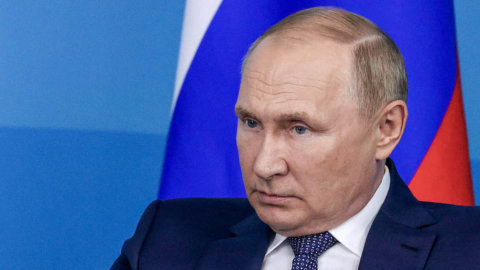A maxi loan of 50 billion dollars, the largest ever granted by the International Monetary Fund, will be disbursed to Argentina which, for its part, will use this money to try to get back on track after the umpteenth monetary crisis threatened to bring it to its knees.
The agreement – which has yet to receive the final approval from the IMF – was reached overnight: the Argentine president Mauricio Macri is committed to enact ambitious reforms that significantly reduce deficits and inflation. In exchange, he will receive 50 billion dollars (about 35 billion euros) over three years, a figure far higher than the forecasts of analysts (who expected a loan of about 30 billion) and which corresponds to 10% of Argentina's GDP.
Through a note, the organization led by Christine Lagarde announces that, according to the agreement, Argentina will receive a first tranche of aid "but subsequently they want to treat the loan as a precautionary measure". The liquidity granted by the IMF will strengthen "the economy for the benefit of all Argentines" and "it will boost market confidence giving the authorities time to fix a range of long-standing vulnerabilities,” explains the Washington institution.
ARGENTINA – IMF: WHAT THE AGREEMENT PROVIDES
The agreement, which has yet to be approved by the IMF board, provides for Argentina to receive a three-year "stand-by" loan in exchange for certain measures. In detail, the plan establishes a deficit reduction to 1,3% of GDP in 2019, down from the current 2,2%, to then break even in 2021. An enormous effort if we take into account that, for the next few years, estimates predict a slowdown in growth and an increase in inflation.
Remaining on consumer prices, the plan presented by Buenos Aires also includes a massive one reduction of inflation which is expected to fall from 28% today to 17% in 2019%, 13% in 2020 and 9% in 2021. Argentina has also pledged to "maintain a flexible and market-driven exchange rate".
The South American country then promised to guarantee “legal independence and operational autonomy to the central bank and to put an end to central bank funding of the federal deficit. Simply put, central bankers will no longer have the ability to print money to finance the government. Further commitments concern the maintenance of a minimum level of spending on social assistance and the introduction of tax and social reforms that make "the playing field equal between men and women", writes the IMF.
"There is no magic wand, the IMF can help but Argentines have to solve their own problems," said Treasury Minister Nicolas Dujovne during the press conference announcing the agreement.
According to forecasts, the board of the International Monetary Fund should definitively approve the agreement at the meeting on 20 June. Once the go-ahead is received, u will start immediatelyfirst tranche of money worth 15 billion euros.
ARGENTINA: THE WEIGHT CRISIS
President Mauricio Macri asked the intervention of the International Monetary Fund last May 8th, while Argentina was faced with the specter of the so-called corralito.
The decision to appeal again to the IMF comes after the collapse of the currency which, in early May, reached new historic lows against the dollar despite the Central Bank having implemented extraordinary moves to try to stop the devaluation: interest rates were raised times in a single week, the last of which by 300 basis points, even reaching 40%. In parallel, 5 billion dollars have been spent on the purpose of defending the weight. Everything useless. The Argentine currency today stands at 24.9 on the greenback. Just a year ago the exchange rate was 15 pesos to one dollar. Since the beginning of 2018, the overall figure has exceeded -20 percentage points.
After the defaults of 2001 and 2014, when everyone was beginning to think that the reforms implemented by Macri were starting to work, the ghost of a new monetary crisis has returned to frighten Argentina. A fear strong enough to push Buenos Aires back under the aegis of the International Monetary Fund.





